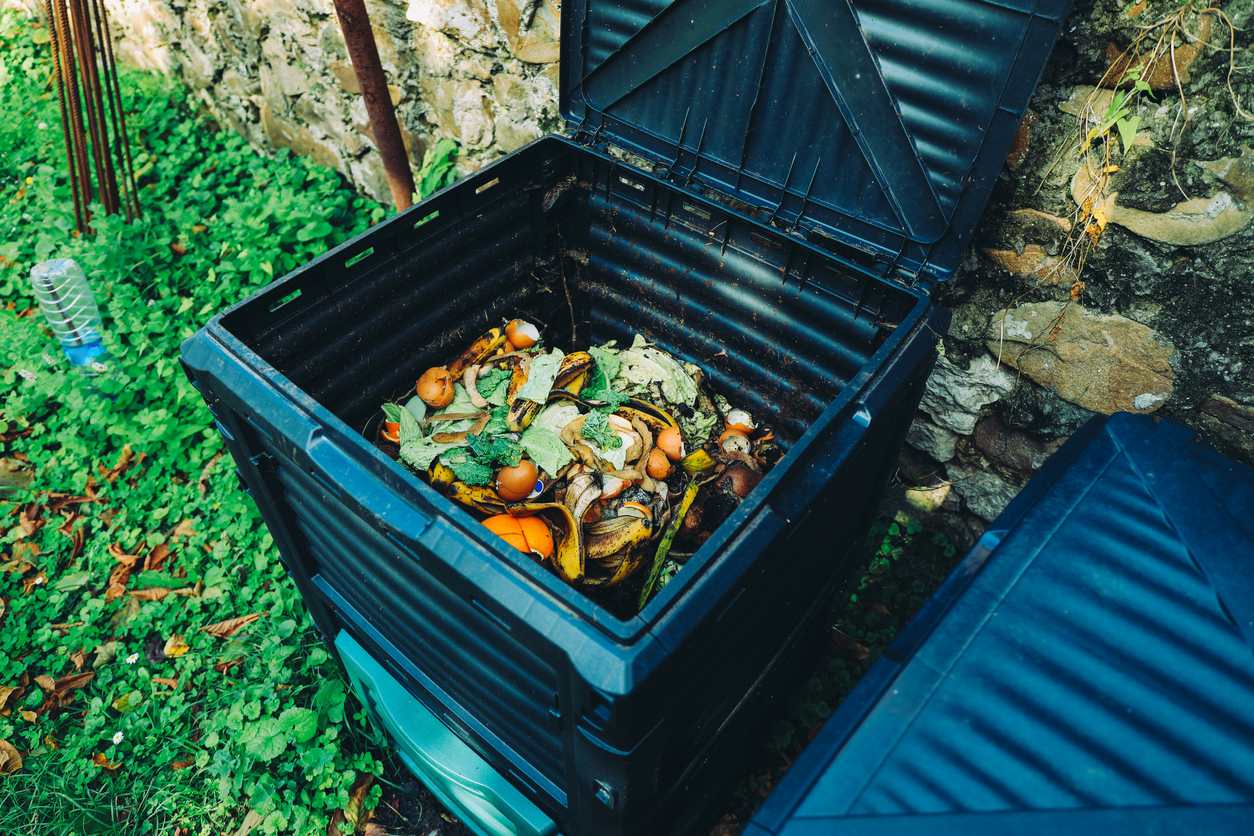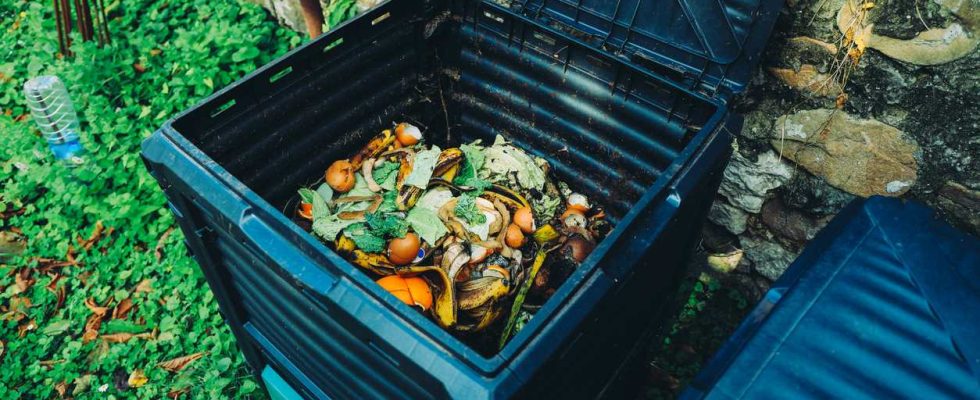
Composting: what does the law say?
For individuals, there is no obligation to compost in 2024. This obligation only affects, for the moment, local authorities which are required to implement solutions for local management of bio-waste and/or collection thereof for individuals. This obligation follows two regulations:
- The European framework directive on waste;
- The AGEC law, that is to say the law relating to the fight against waste and the circular economy.
To meet this obligation, communities have the choice between three solutions:
- Separate collection : this involves the provision of an additional bin which will be, like other sorting bins, collected by a dump truck.
- The establishment of voluntary drop-off pointsas for collecting glass.
- Distribution of individual composters to those who can install one in their home.
The composter, for what waste?
As you have understood, the Government, more precisely the Ministry of Ecological Transition, takes the management of organic waste very seriously, because it constitutes a major challenge in the fight against global warming by limiting waste incineration.
In the more or less long term, if you have the necessary space, it may be interesting to install a compost bin in your garden, unless your municipality requires it. These bins are intended for organic waste which can putrefy, that is to say rot, such as fruit and vegetable peelings, coffee grounds, cores, etc. After decomposition, this waste becomes a very useful fertilizer. appreciated by plants.
Choose the location of your composter wisely
Whether the compost bin is given to you as part of the new measures or you decide to buy one, it will allow you, on a daily basis, to reduce your waste and you will enjoy benefiting from the compost thus obtained for your plants.
Once you have a compost bin, the first thing to do is determine its location. It is clear that if you only have a small garden, you will probably not be spoiled for choice, but it is best to try to respect certain criteria:
- Whatever the size of your garden, for added convenience and easy access, it must be installed sufficiently close to the house, even if its unaesthetic appearance encourages putting it in a corner of the garden that is less visible and where you go less often. This is a completely understandable reflex, but it also means forgetting that it is possible to hide it so that it fits in with your exterior.
- However, be sure to install it at a reasonable distance from doors and windows of the house so as not to be inconvenienced.
- It is better to opt for a location sheltered from strong winds which would tend to dry out the compost, without forgetting that lighter waste could fly away.
- Avoid locations in direct sunlight, because you then risk compromising the decomposition process. Choose a partially shaded location. For optimal decomposition, a few hours of sunlight are enough.
- The composter must be placed directly on bare ground. It is possible to put a mesh at the bottom of the composter to prevent the intrusion of possible rodents, while allowing the infiltration of water and the free circulation of decomposers. This will avoid any problems with rot or odor. If your garden is covered with paving stones, it is recommended that you remove them from the area where you plan to install your composter.
- The space must be wide enough to allow you to move and turn the compost regularly.
Once the location has been chosen, it’s time to hide it.
Hide your composter
Several solutions are available to you to make your composter more discreet in your garden and make it a decorative element.
Hide your composter behind climbing plants
A first tip for integrating your compost into your garden is to hide it behind one or more climbing plants. This very simple solution to implement simply consists of planting a vine against the composter. The surface will be quickly covered.
However, it will need to be maintained to maintain access to your compost. You can, for example, opt for honeysuckle which has the advantage of being fragrant. Likewise, clematis are quite covering and will allow you to quickly hide your composter.
Create a green wall to hide your composter
Another way to use plants to hide your composter is to plant shrubs to form a sort of hedge which isolates it. You can place them in a U, L shape or simply create a line behind which you will install your composter.
Choose evergreen plants for a concealed composter all year round. You can opt for Photinia, evergreen berberis, etc. However, you will have to wait until the plants have established and developed well to obtain the expected result, but thereafter, you will no longer see your composter.
On the other hand, for an aesthetic result, be careful to maintain a well-maintained appearance. Without forgetting that if you let the wild side take over too much, it risks discouraging you from going to your composter which you will quickly abandon.
Install a screen for invisible compost
The advantage of this solution is that it is effective immediately, lastingly and in all seasons. You can buy a ready-made fence or make it, but in both cases, make sure to install it securely. Then you can give free rein to your creative spirit by painting it to add a colorful and original touch, or by using it as a support for plants.
A composter hidden behind a privacy screen
It is also possible to completely hide your composter using a privacy screen. It can be made from a plant material, such as reeds, wickerwork, etc. It will thus be perfectly integrated into your garden. You can also use bamboo canes of different heights planted next to each other to create an aesthetic privacy screen.
Install your composter behind a structure
If you have a shed or greenhouse in your garden, it is possible to install your composter behind this structure. It will thus be hidden with ease.
A beehive-looking composter
Very often, if we try to hide our composter, it is because it is not very aesthetic. But this is not the case for all of them and some of them are designed in such a way that they become a decorative element of your garden.
In fact, you can now find composters that look like a beehive and are very aesthetic. You can buy it directly, but also build it. He will then bring a touch of originality to your exterior and will easily fit into the decor.

